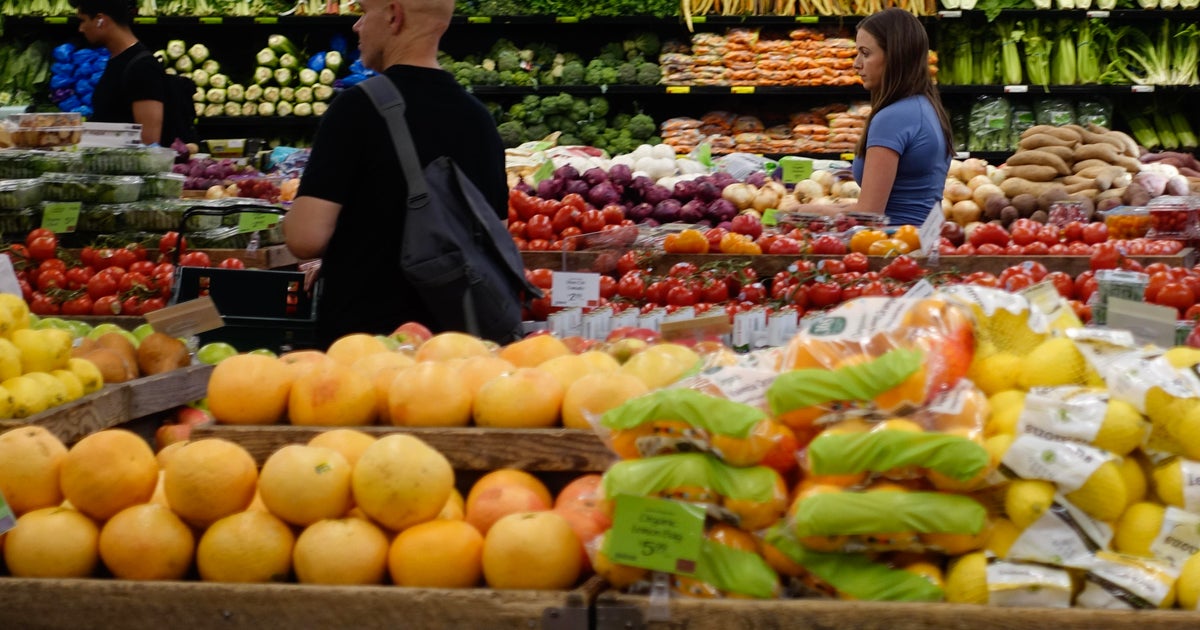Layoffs move from restaurants to warehouses and law offices
As U.S. job losses mount, the number of unemployed Americans is reaching levels last seen in the Great Depression. With another 4 million people filing for jobless benefits last week, nearly 1 in 6 workers is now sidelined, or around 25 million newly unemployed in just the past five weeks. Millions more could join them when another week's new jobless claims are released this Thursday.
America's job losses have spread quickly from coastal states, where the coronavirus first erupted in the U.S., to the Rust Belt and the Sun Belt. In Kentucky and Michigan, around 1 in 4 workers has applied for jobless aid since mid-March, labor data show, while in Georgia, Louisiana, Nevada and Pennsylvania the figure is around 1 in 5.
Hawaii, heavily dependent on tourism, has taken the hardest hit to its labor market — nearly 26% of the state's workforce has applied for jobless benefits since mid-March as of last week.
Layoffs are also widening beyond the food service, retail and leisure industries that suffered the steepest initial falls as the virus crippled the U.S. economy, largely because those businesses have already implemented massive layoffs.
"They fired everyone they could fire in the low-wage, low-hour" jobs, said Dan Alpert, an investment banker and co-creator of the private job quality index with experts at institutions including Cornell University and the University of Missouri.
Hitting offices and warehouses
Professional and business services firms have lost 1.3 million jobs from mid-February through the first week of April, according to an analysis from Morgan Stanley and the Federal Reserve.
"That is the most unfortunate because that obviously is the result of lack of cash flowing from [the Paycheck Protection Program] and the other programs, which were intended to keep people on who could still work and keep them on payroll even if they couldn't work," Alpert said, referring to emergency federal loans for small businesses.
Warehousing, trade and transportation companies have shed roughly 10% of their total jobs, according to the same analysis. That sector was the second-hardest hit (after leisure and hospitality), and lost 2.5 million jobs from mid-February to the first week of April.
Corey Williams, 31, was laid off from his warehouse job in Michigan a month ago, he told the Associated Press, and anxiously waited for unemployment benefits to kick in while his rent, insurance and other bills piled up. That finally happened last Wednesday — and he quickly paid $1,700 in bills.
"It was getting pretty tight, pretty tight," he told the AP. "It was definitely stressful for the last few days."
Drivers also are feeling the impact. Uber driver Emily King, who lives in the Dallas-Fort Worth area in Texas, hasn't driven since the first week of April, when she first heard that gig workers would be able to get financial help. But King, 41, was only able to apply for unemployment on April 15, since that was the first day she was able to access the state's unemployment website after weeks of calling. She's unsure when — or if — her benefits will come through.
"There's no confirmation. I didn't get an email — there's not really anything that happens. It just pushes your information into the system," she said.
King's unsure whether she'll look at other options, like pandemic assistance or the Paycheck Protection Program, which on paper is open to self-employed workers.
Her husband, a truck driver for a mattress company, is still employed but working only three days a week transporting goods for other companies. No one is buying mattresses right now.
"Very quickly, this could become a situation where my voluntary stay at home is going to kick us in the teeth financially," King said.
Crisis deepens inequities
Even as the economic impact of the coronavirus widens, some groups are particularly hit hard financially. A majority of Hispanics around the U.S. — 61% — say they're lost work or taken a pay cut during the pandemic, according to a Pew Research Center report published last week. Among black Americans, 44% reported losing work or income, compared with 38% of white Americans.
Job losses also have skewed toward younger workers. More than a third of 18-to-29-year-olds told Pew they or a household member lost a job due to COVID-19. Only 17% of those over 65 said the same.
Liana McCrea, 26, was laid off from her project manager job in Chicago right before Illinois implemented a lockdown. She immediately moved to Fort Lauderdale, Florida, to be with extended family. She hopes to use the opportunity to speed a shift in career toward software coding. She plans to apply for unemployment benefits, but she's steeling herself for a long wait.
"I could be waiting two, three months," McCrea said. "What concerns me so much about this entire pandemic is, America as a whole, we're not prepared."
Austin Harvey, a 23-year-old restaurant server in Pittsburgh who saw his income plummet in early March when Pennsylvania closed many businesses, has since successfully applied for unemployment benefits and is looking for online writing work. He considers himself fortunate.
The disproportionate hit to the lowest-paid workers points to structural issues within the U.S. economy, such as the widest gap between rich and poor since the years before the Great Depression. Less than a quarter of workers have savings to last three months, Pew reported.
"This is proving that the U.S. economy was so reliant on low-wage jobs — that when you have a crisis like this, those jobs literally disappear overnight," job-quality tracker Alpert said.
"Now you are asking yourself, if we were so dependent on those jobs, what will those people ultimately end up doing?" he added. "Will we be able to rebuild retail, leisure economies to the point where we can sustain these people? They were already at the margin of being able to support themselves."
With reporting from Aimee Picchi and the Associated Press.



